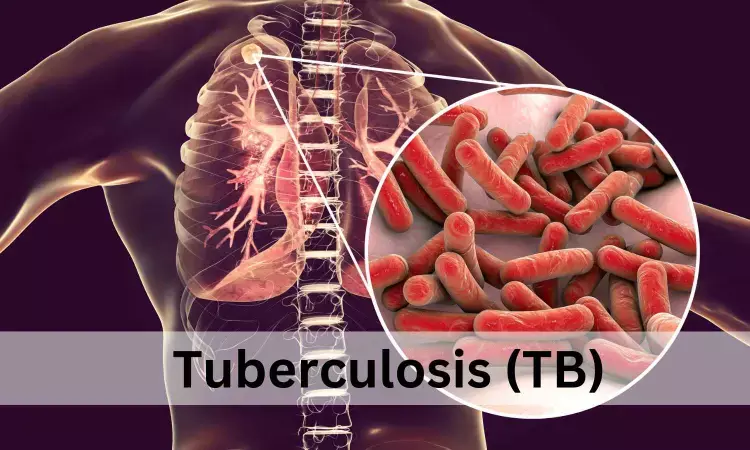- Home
- Medical news & Guidelines
- Anesthesiology
- Cardiology and CTVS
- Critical Care
- Dentistry
- Dermatology
- Diabetes and Endocrinology
- ENT
- Gastroenterology
- Medicine
- Nephrology
- Neurology
- Obstretics-Gynaecology
- Oncology
- Ophthalmology
- Orthopaedics
- Pediatrics-Neonatology
- Psychiatry
- Pulmonology
- Radiology
- Surgery
- Urology
- Laboratory Medicine
- Diet
- Nursing
- Paramedical
- Physiotherapy
- Health news
- Fact Check
- Bone Health Fact Check
- Brain Health Fact Check
- Cancer Related Fact Check
- Child Care Fact Check
- Dental and oral health fact check
- Diabetes and metabolic health fact check
- Diet and Nutrition Fact Check
- Eye and ENT Care Fact Check
- Fitness fact check
- Gut health fact check
- Heart health fact check
- Kidney health fact check
- Medical education fact check
- Men's health fact check
- Respiratory fact check
- Skin and hair care fact check
- Vaccine and Immunization fact check
- Women's health fact check
- AYUSH
- State News
- Andaman and Nicobar Islands
- Andhra Pradesh
- Arunachal Pradesh
- Assam
- Bihar
- Chandigarh
- Chattisgarh
- Dadra and Nagar Haveli
- Daman and Diu
- Delhi
- Goa
- Gujarat
- Haryana
- Himachal Pradesh
- Jammu & Kashmir
- Jharkhand
- Karnataka
- Kerala
- Ladakh
- Lakshadweep
- Madhya Pradesh
- Maharashtra
- Manipur
- Meghalaya
- Mizoram
- Nagaland
- Odisha
- Puducherry
- Punjab
- Rajasthan
- Sikkim
- Tamil Nadu
- Telangana
- Tripura
- Uttar Pradesh
- Uttrakhand
- West Bengal
- Medical Education
- Industry
Proton pump inhibitors may accelerate tuberculosis treatment

UK: Researchers have found in a new study that Proton pump inhibitors could accelerate tuberculosis treatment. Further these drugs stop the bacteria that cause TB from becoming tolerant to antibiotics used to treat the illness.
The study has been published in Proceedings of the National Academy of Sciences (PNAS).
The research was led by Professor Lalita Ramakrishnan and colleagues from the University of Cambridge and the Medical Research Council Laboratory of Molecular Biology, Cambridge.
Heartburn drugs like omeprazole, pantoprazole, lansoprazole and rabeprazole are cheap, commonly available, safe, and already approved. The researchers found that these drugs stop the bacteria that cause TB from becoming tolerant to antibiotics used to treat the illness.
TB typically takes months to treat with multiple drugs. This poses logistical challenges in completing treatment for many people. So, it is widely agreed that shortening TB treatment is needed to thwart the global burden of the disease.
In this study, Professor Ramakrishnan and her colleagues wanted to find out exactly why treatment for TB usually involves taking antibiotics for several months.
In 2021, an estimated 10.6 million people fell ill with TB, and 1.6 million died from the disease.
When we’re infected, TB bacteria enter our tissues and invade cells that makeup part of our immune system, called macrophages. When they get there, they turn on pumps in their cell membranes that pump out the antibiotics we use against them. This renders the bacteria tolerant to antibiotics, a reason it takes so long to treat TB.
In this new study, Ramakrishnan and her colleagues decided to test if a cardiac and blood pressure drug called verapamil, which blocks human cell membrane pumps, could also block the bacterial cell membrane pump.
To do this, they used a neat approach in which they tagged an antibiotic typically used to treat TB, rifampicin, with a fluorescent marker so they could track exactly how the bacteria process the antibiotic. This meant they could directly see that verapamil does indeed stop the bacteria from ejecting rifampicin.
The researchers then wondered if other drugs widely used for all sorts of conditions, which also incidentally block human cell membrane pumps, could have the same effect on the TB bacterial pumps as verapamil.
Professor Lalita Ramakrishnan said:
“That’s when my PhD student, Alex Lake, decided to screen these drugs and bingo, many of them worked.
“The most stunning of all was the class of proton pump inhibitors that are among the most widely used, over-the-counter drugs for heartburn, reflux, gastritis - omeprazole, pantoprazole, lansoprazole, rabeprazole.
“Not only do they work, but they work as well as or possibly with even greater potency than verapamil.
“This is very cool because one of the holy grails of TB treatment is whether one can develop shortening regimes.
“And since active drug pumps are thought to enable bacteria to develop drug resistance, there is a possibility that these drugs could simultaneously reduce the chances of drug resistance, a significant problem in TB treatment.”
Dr Stephen Oakeshott, Head of Infection and Immunity at the Medical Research Council, part of UK Research and Innovation, said:
“This exciting work is a great example of how understanding basic cellular mechanisms can directly unlock pathways to future treatment regimes.
“The potential for repurposing cheap and easily accessible drugs to accelerate TB treatment could have enormous health impact worldwide, and we look forward to seeing this discovery move forward.”
So far, this work has only been carried out in cells. More research will be needed before eventually moving on to clinical trials to look at potential treatment regimes for drug combinations in patients.
Dr Kamal Kant Kohli-MBBS, DTCD- a chest specialist with more than 30 years of practice and a flair for writing clinical articles, Dr Kamal Kant Kohli joined Medical Dialogues as a Chief Editor of Medical News. Besides writing articles, as an editor, he proofreads and verifies all the medical content published on Medical Dialogues including those coming from journals, studies,medical conferences,guidelines etc. Email: drkohli@medicaldialogues.in. Contact no. 011-43720751


